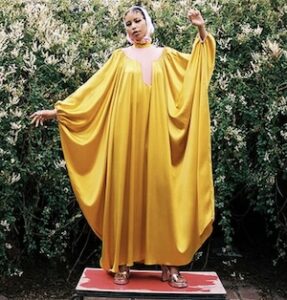Men; The Powerful Undercurrents of Their Emotional Expressions
By Nhi Phan
Do you feel women are often encouraged to share their feelings openly, fostering an environment of vulnerability and connection, their tenderness bared wide open? The emotional landscapes of men and women are profoundly shaped by the cultural norms they grow up with. On the flip side, men may find themselves leaning towards quieter, more solitary forms of expression, a reflection of societal expectations that seem to prize stoicism over openness. The sentiments of tenderness in a male world can be seen as weak. How do men navigate their own emotional worlds? Understand this better at Men; The Powerful Undercurrents of Their Emotional Expressions
Image on left with thanks to Moleskin
Society has long drawn different lines when it comes to how men and women should express their emotions. While women are often encouraged to share their feelings openly and embrace vulnerability, men are expected to conform to a different standard. They are often told to “man up,” to stay strong, and to keep their emotions in check.
These days, we all understand how important it is to express our feelings for our overall health. There is a real push to change outdated views and show that it is healthy and normal for everyone to express their feelings, no matter their gender. However, old habits are hard to break. Despite the changing attitudes, men still find it tough to open up and show vulnerability.
For many men, such artistic or physical expressions become a gateway to unlocking emotions. This concept is vividly brought to life in the exhibition “To Be A Man” at London’s Candid Arts Gallery, where a diverse range of media explores the complex facets of masculinity.
It features a variety of artistic expressions, from Alistair Morrison’s haunting sculptures that evoke the silent strength and vulnerability of men to Nikolas Antoniou’s vivid photographs capturing moments of male introspection, and Amy Dury’s powerful paintings that combine oil, acrylic, charcoal, and pencil in layered.
The live performances add another layer of emotional depth. Artists like Tony Davis and Dauda Ladejob use their craft to portray the duality of male strength and fragility, offering a powerful commentary on modern masculinity.
This blend of art forms builds on the narrative that male emotional expression can be robust and vulnerable, providing a public platform for exploring male identity in nuanced ways that defy traditional stereotypes.
Further enriching this exploration of male emotional landscapes, Daniel Bird’s “Sorry Men” offers a profound look into the intricacies of male emotional expression through a captivating collection of 35 short stories.
Each story skillfully blends humour with deep emotion, putting men in a variety of tough and complex situations. These narratives span the whole range of human feelings, showing men as they wrestle with who they are, what they are responsible for, and the expectations society has for them.
For instance, Bird tells the story of a man, overwhelmed by the pressures of societal judgment, who assumes a Russian identity, using this new persona as a shield against potential threats and to navigate social interactions more freely. This story, while humorous, poignantly underscores the lengths to which men will go to avoid vulnerability.
Bird’s sharp storytelling sheds light on the subtle aspects of male emotion that are often missed in a society that values stoicism. His characters, though imperfect and sometimes struggling, are portrayed with genuine empathy and realism. Their stories act like a mirror to the real world, showing the complex and sometimes conflicting ways men understand and deal with their emotions.
The rise of social media has unexpectedly made it even harder for not just men, but all people, to express their feelings openly. Social media platforms, while designed to connect us, often end up isolating us further, making genuine personal connections rare.
Because of this, it can lead to negative self-perceptions about emotions. These unspoken feelings can pile up, weighing heavily on mental well-being. We are making strides towards changing societal attitudes towards emotional openness, but there’s still a long way to go.
When voicing these emotions out loud or showing them through actions seems too daunting, a more intimate and manageable option can be to write or draw. This method offers a private space to gently unpack and explore these complex feelings. Jotting thoughts on paper allows for a private exploration of emotions that might be hard to articulate otherwise.
This concept is beautifully encapsulated in Moleskine’s recent campaign in Milan, which celebrates the act of writing by hand. Through their unique, all-hand-drawn poster campaign, Moleskine highlights how handwriting can be more than a mere act of communication, it is a bridge to clearer thinking and emotional release.
This method, grounded in the tactile and meditative nature of pen to paper, is not just artistically enriching but also cognitively beneficial, supporting studies that show its aid in memory and learning, which is particularly valuable in our digital age.
As we navigate the changing landscape of gender and expression, isn’t it crucial to ensure that men feel safe to express their feelings, whether through words, art, or action? By embracing a variety of ways for men to share their emotions, we can dismantle the stigmas that too often leave them silent.
This leads us towards a world that understands and articulates emotions more deeply. Indeed, as revealed through the vivid stories in Daniel Bird’s “Sorry Men” and the dynamic “To Be A Man” exhibition, truly comprehending men’s emotions enriches our entire understanding of the human experience. Isn’t it time we all listened a little more?
Sorry Men by Daniel Bird has been published since 02nd April 2024. So find out more at signal8press.com/sorry-men
To be a man exhibition at Candid Arts Club here candidartslondon.com
Pen & Paper Campaign launched in Milan, on April 22nd 2024. Find out more at moleskine.com/en-gb/stories/the-pen-paper-campaign/
If you like reading Men; The Powerful Undercurrents of Their Emotional Expressions Why not try reading Literary Treasures: A Guide to Japanese Culture Books Every Bibliophile Should Own
.Cent Magazine London, Be Inspired; Get Involved.









